Meet the 2024-25 Udall Center Fellows!
Daryn Walsh, UC Student Assistant
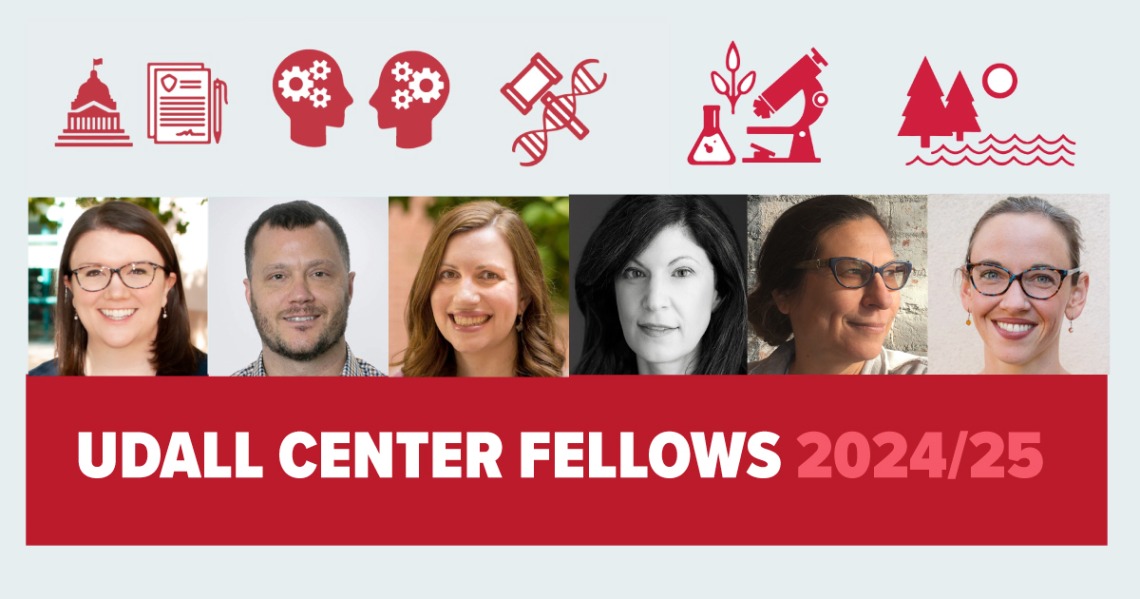
In 1990, the Udall Center for Studies in Public Policy (UC) began their UC Fellows Program to relieve UArizona professors of their teaching duties for a semester so they could focus their attention on a research project pertaining to public policy.
After 34 years of consistent results, the 2024-25 Fellows continue to raise the bar. This spring, the Udall Center Fellows Program is excited to welcome a new cohort of six scholars working on five incredible projects.
This academic year, the UC Fellows Program will celebrate its first full-term collaboration with the BIO5 Institute. This new partnership will welcome a new era of innovation uniting the biosciences and public policy.
The following projects are the result of continued partnerships between the Udall Center for Studies in Public Policy and the UArizona College of Social and Behavioral Sciences; the College of Fine Arts; the BIO5 Institute; and the Office of Research, Innovation and Impact. The selected scholars represent five different schools and departments on campus, including the School of Geography, Development and Environment; the College of Nursing; the Mel and Enid Zuckerman College of Public Health; the School of Anthropology; and the School of Theatre, Film & Television.
Read on to learn more about the 2024-25 UC Fellows and the research they will conduct over the course of the year.
Leslie Farland & Jessica Rainbow
Associate Professor, College of Public Health, Epidemiology and Biostatistics; Associate Professor, College of Nursing, Advanced Nursing Practice and Science Division
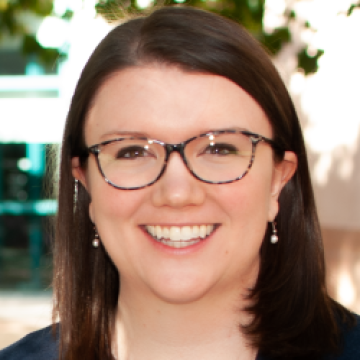
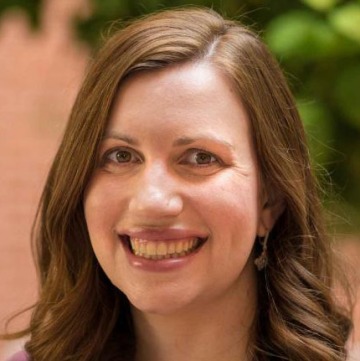
Project Title: Occupational Exposures and Workplace Prenatal and Postnatal Policy: An Opportunity for Intervention
Project Track: Biosciences and Public Policy (in partnership with the BIO5 Institute)
How safe is the work environment for potential childbearing female nurses and do the work environment and work demands impact their return to work postpartum?
Associate Professors Leslie Farland and Jessica Rainbow are working in collaboration with the BIO5 institute to answer these questions and influence policy change to increase safety for pregnant registered nurses (RNs).
RNs make up the largest portion of the healthcare workforce and a large portion of RNs are women within their childbearing years. The Occupational Safety and Health Administration has tagged many hospital settings as hazardous work environments that could impact the safety of these potential future mothers.
During their UC Fellowship, Farland and Rainbow will research policies that can assist women in the nursing workforce during the prenatal and postnatal periods. The researchers plan to submit an R01 grant proposal to the National Institute for Health (NIH), complete a peer-reviewed manuscript about prenatal/postnatal policies and utilize their collaboration with the BIO5 Institute to explore the possibility of studying hospital cleaning chemicals and breastmilk for a future NIH grant proposal.
Farland and Rainbow have recognized the adverse health outcome of hazardous work environments on maternal health and aim to gain a deeper level of knowledge and motivate policy changes that provide more support to these women.
Jason Jurjevich
Assistant Professor, School of Geography, Development, and Environment
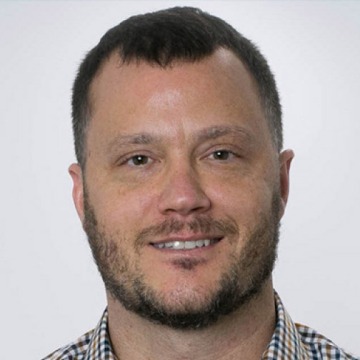
Project Title: Mapping Racist Covenants: Cultivating a National Research Coordinated Network
Project Track: Social Sciences and Public Policy (in partnership with the College of Social & Behavioral Sciences)
The phrase, “Use data for good,” should be a motif for everyday life in our developing society. And, for Assistant Professor Jason Jurjevich, it is the backbone of his project, Mapping Racist Covenants (MRC).
Jurjevich started the MRC project in September 2022 to spotlight injustice – specifically housing discrimination through racist neighborhood covenants, conditions and restrictions (CCRs). The data collected by Jurjevich is the first and only quantitative measure of historical housing discrimination in Tucson. Over the years, MRC has already had many great successes, including recognition by Tucson Mayor Regina Romero as an example of community-centered research and recognition in the Arizona legislature in regards to a bill introduced into the Arizona Senate to make it easier to remove racist language from CCRs.
As a UC Fellow, Jurjevich aims to expand his research of covenants and improve public policy to better support social and racial justice – something he believes can propel UArizona to national-leadership status in the arena of covenant research.
Jurjevich is also working to submit a proposal to improve theoretical understanding of housing discrimination and how to influence policy change.
Robin Reineke
Assistant Research Social Scientist, Southwest Center; Assistant Professor, School of Anthropology
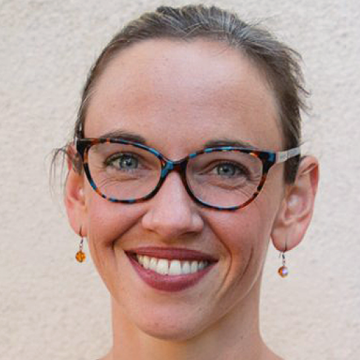
Project Title: Understanding Excessive Use of Force at the US-Mexico Border: Evidence From Forensic Records
Project Track: Social Sciences and Public Policy (in partnership with the College of Social & Behavioral Sciences)
Tucson’s proximity to the U.S.-Mexico border ensures that Tusconans are acutely aware of problems that arise at the border.
Assistant Professor and Research Scientist Robin Reineke dives into the specifics of deaths that occur while migrants are crossing the US-Mexico border.
Since the early 2000s, migrant deaths near the border have dramatically increased; a fact that can be attributed to the incorporation of deterrence strategies into the U.S. government’s border security efforts. In her research, Reineke will focus on the analysis of autopsy and missing persons reports from the Pima County Office of the Medical Examiner.
The UC Fellows Program will allow Reineke the time to look at initial data, make public the results of her findings and write grants that aim to expand this research to more regions along the U.S.-Mexico border. During her Fellowship, she will work on a quantitative and qualitative analysis of databases of migrant deaths and relevant missing persons reports.
The intention of this analysis is to incorporate an understanding of the role of law enforcement in the circumstances of a person’s death or disappearance. The UC Fellows Program will allow Reineke the time to identify trends in the data that could support future policy change.
Elaine Romero
Associate Professor, School of Theatre, Film, and Television
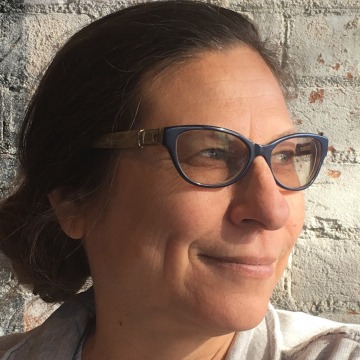
Project Title: The Invisible Line
Project Track: Fine Arts and Public Policy (in partnership with the College of Fine Arts)
The “border crisis” has hijacked this country’s attention and called into question its identity as a place that welcomes people of all nations and all creeds. On the border, could public policy, in part, be at the root of what has created such intense strife? When the will of the federal government collides with the wills of state governments it represents a unique crucible of public policy along the invisible line.
During her UC Fellowship, Associate Professor Elaine Romero will complete research, writing and a staged-reading presentation of her play, The Invisible Line, a stage play that will enliven an issue of public policy that threatens to tear the U.S. apart. Romero’s research includes the politics of the federal government and border states and how they impact the lives of U.S. citizens and migrants, many seeking asylum from their home countries.” As a UC Fellow, Romero will demonstrate how creative research can frame issues of public policy while creating a space and providing an environment to cultivate interdisciplinary conversations around a topic.
Part of this process will include a conversation around public policy and the border, in collaboration with as many UArizona units as possible, to discuss public policy relating to the border crisis. Romero intends to include partners in the symposium such as the Immigration Law and Justice Network, the Mexican Consulate in Tucson, Coalicíon de Derechos Humanos and any new partners she meets throughout her journey. The UC Fellows Program will allow Romero to leverage her position in the arts to deliver a well-crafted play that will speak on a topic incredibly relevant to our culture in Tucson.
Lisanne Skyler
Professor, School of Theatre, Film, & Television
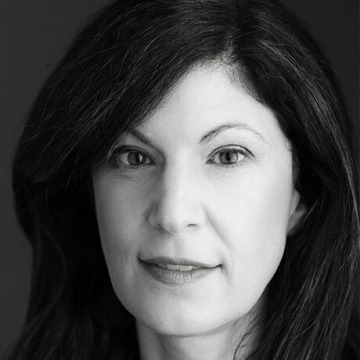
Project Title: This Side of Midnight: A Feature Documentary in Post-Production
Project Track: Public Policy Research (in partnership with the Office of Research, Innovation and Impact)
At the height of the Reagan era, as AIDS ravaged the city, a new generation of culturally diverse artists found a creative haven in New York’s burgeoning downtown nightclubs.
Professor Lisanne Skyler’s feature-length documentary-in-progress, entitled This Side of Midnight, aims to capture just that – the intersection of magic and despair in New York’s 1980s nightclub culture.
Skyler’s intention for This Side of Midnight is to inspire conversations in public policy about the integral role creativity and the arts play in our culture, economy and in the general mental health of the public. As Skyler describes it, the generation of artists who converged in NYC in the 80s was a melting pot of identities and perspectives challenging social issues, but tied together in the name of creative expression – an ideal she is working to translate in her film.
During her UC Fellowship, Skyler and the film’s producer Erin Wright will complete the editing of the film and submit the documentary to film festivals to determine its world premiere. The team will also develop the promotion, social engagement and outreach campaigns in support of the documentary in order to reach the largest audience possible.

